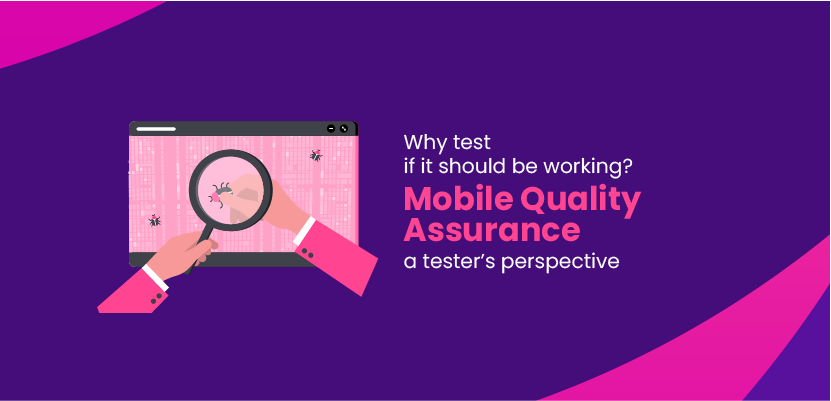8 Dominant Software Development Trends for 2023

Krzysztof Hubnicki

Table of Contents
- Introduction
- What Is Software Development?
- Roles in the industry
- Deciding the right developer for your business
- Benefits of Software Development
- Competitive edge
- Improved security
- Customization and uniqueness
- Scalability
- Cost reduction
- 2023 Software Development Trends
- Artificial Intelligence (AI)
- Full-Stack Development
- Python
- Cloud Computing
- 5G Networks and Technology
- No-Code/Low-Code Development
- Augmented and Virtual Reality
- New Programming Languages
- DevSecOps
- Conclusion: Find An Up-To-Date Software Developer Today!
Introduction
In an era where the digital frontier is constantly advancing, the tech industry stands tall as a beacon of relentless innovation. As 2023 unfolds, the software development landscape is experiencing seismic shifts, shaping the future of how businesses operate and consumers interact. Whether you’re a seasoned developer, an entrepreneur, or an avid tech enthusiast, staying abreast of the latest software development trends isn’t just beneficial—it’s crucial. Dive into this comprehensive guide as we unravel the top technological breakthroughs that are setting the tone for 2023 and beyond. From the omnipresence of Artificial Intelligence to the evolution of 5G technology, understand the intricate tapestry of tools and technologies that are defining the next chapter of the digital age.
What Is Software Development?
At its very essence, software development is the multifaceted process of conceiving, designing, programming, testing, and maintaining software. In a world increasingly governed by digital interactions, software has become the cornerstone for innovation and utility. It powers our mobile apps, drives our businesses, and even controls our home appliances. But beyond the code that forms its backbone, there are people with specialized roles who bring software to life.
Roles in the Industry:
- Software Engineers: Typically at the heart of development, these professionals design, write, and test the software, ensuring its functionality and efficiency.
- Front-end Developers: Focused on the user interface and experience, they ensure that the software is accessible and visually appealing.
- Back-end Developers: They manage the server, database, and application functionalities, ensuring the ‘engine’ of the software runs smoothly.
- Quality Assurance (QA) Testers: Before any software sees the light of day, it’s vetted for bugs and issues by these meticulous testers.
- DevOps Engineers: Bridging the gap between development and operations, they ensure the software’s seamless deployment and functionality across different environments.
Deciding the Right Developer for Your Business:
Choosing the right developer hinges not just on their technical prowess, but on their fit for your specific project or business needs. If you’re developing a mobile app, you’d lean toward a mobile app developer with expertise in iOS or Android platforms. Building a website? A full-stack or front-end developer might be your go-to.
It’s essential to understand your project’s requirements, your target audience, and the platforms you wish to leverage. The right developer not only brings your vision to life but also offers insights and innovations you might not have considered.
Benefits of Software Development
In today’s digital age, software development is more than just writing code; it’s about crafting solutions that propel businesses forward. Integrating advanced software solutions can offer numerous advantages, transforming the way businesses operate and deliver value to their customers. Here are the prominent benefits of software development:
- Competitive Edge: In an ever-evolving digital landscape, businesses that leverage the latest software technologies position themselves ahead of their competitors. By streamlining operations, enhancing user experience, or introducing innovative features, a well-developed software can be the differentiating factor that sets a business apart in the market.
- Improved Security: Cyber threats are on the rise, and with it, the importance of secure software. Developing bespoke software tailored to a company’s unique needs ensures that specific security protocols and measures are in place, protecting sensitive data from potential breaches.
- Customization and Uniqueness: Off-the-shelf software often comes with generic features, many of which might not be relevant to specific business needs. Custom software development ensures that the application is tailor-made, aligning with a company’s unique requirements and branding, providing a one-of-a-kind user experience.
- Scalability: Business growth often demands software evolution. Custom software development allows for scalability, ensuring that the software can adapt and grow as the business expands, accommodating increased users or additional features without a complete overhaul.
- Cost Reduction: While the initial investment in custom software might seem steep, in the long run, it often proves to be cost-effective. With precise features, enhanced efficiency, and reduced need for frequent updates or purchasing additional licenses, businesses can see a significant reduction in costs over time.
In essence, software development is not just an IT requirement but a critical business strategy component. When approached correctly, it can become a driving force behind business innovation and growth.
2023 Software Development Trends
The velocity of technological advancement is truly breathtaking, and as we advance further into the digital age, staying current with these emerging trends is paramount. Here’s a closer look at the top nine software development trends shaping 2023:
- Artificial Intelligence (AI): Artificial Intelligence is no longer just a buzzword; it’s rapidly infiltrating numerous sectors. From chatbots enhancing customer interactions to AI-driven analytics optimizing business operations, the scope is vast. Companies are increasingly relying on AI not only to streamline tasks but also to unlock previously unattainable potentials. Its ability to boost productivity, diminish errors, and personalize customer experiences makes it a game-changer.
- Full-Stack Development: The allure of full-stack developers lies in their multifaceted skills. Tasked with both front-end (user-facing) and back-end (server-side) development, they’re pivotal for constructing cohesive, efficient web applications. As businesses increasingly pivot online, the demand for these comprehensive developers remains steadfast, ensuring web solutions are both aesthetically pleasing and functionally robust.
- Python: Python’s staying power is a testament to its flexibility and versatility. This programming language is not only pivotal for web and software development but also is leading the charge in emerging realms like AI, machine learning, and data analytics. Its continued relevance is underscored by its adaptability and wide-ranging applications.
- Cloud Computing: The cloud has revolutionized how businesses approach data storage and application deployment. Offering an efficient, scalable alternative to traditional IT infrastructure, cloud solutions like Salesforce or Microsoft Azure empower developers with enhanced tools while ensuring data accessibility from anywhere, anytime. As remote work and online collaborations gain prominence, cloud computing’s indispensability only grows.
- 5G Networks and Technology: 5G technology, heralded as the next frontier in mobile communication, promises to redefine device interconnectivity. Beyond just faster browsing speeds, the true potential of 5G lies in reshaping digital communication globally, paving the way for more integrated, responsive digital ecosystems.
- No-Code/Low-Code Development: Empowering even those with limited coding knowledge, no-code/low-code platforms like Wix.com democratize app and website creation. By offering visual tools to design complex functionalities, these platforms expedite development timelines, ensuring businesses can swiftly deploy digital solutions while curbing expenses.
- Augmented and Virtual Reality: Often misinterpreted as merely tools for entertainment, AR and VR possess profound business implications. Whether it’s virtual simulations for training, interactive 3D product demonstrations, or augmented data overlays for enhanced real-world insights, these technologies offer immersive experiences that can transform numerous industry operations.
- New Programming Languages: While stalwarts like Python remain in vogue, newer languages are emerging, tailoring to contemporary needs. Languages such as Kotlin, Rust, and TypeScript cater to modern technological demands, offering developers more streamlined, efficient coding alternatives. Their growing traction underscores the industry’s constant evolution.
- DevSecOps: In an era rife with cyber threats, intertwining security measures with development and operations (DevSecOps) has become paramount. This approach foregrounds security across the entire development lifecycle, fostering inter-departmental collaborations to detect and address vulnerabilities proactively.
Conclusion: Find An Up-To-Date Software Developer Today!
Navigating the intricate landscape of software development in 2023 requires not just an understanding of the latest trends but also the expertise to implement them effectively. As we’ve observed, the realms of AI, cloud computing, augmented reality, and more are not just fleeting phenomena; they are reshaping the foundations of the digital world.
Employing a developer who’s merely proficient in coding isn’t enough. You need professionals who are abreast of the ever-evolving technological landscape, ones who can proactively harness these emerging trends to propel your business forward. A well-versed developer can be the linchpin, turning innovative ideas into tangible, cutting-edge digital solutions.
In this tech-driven era, staying stagnant is not an option. Whether you’re a burgeoning startup or an established enterprise, now is the opportune moment to onboard a developer who’s not only skilled but also forward-thinking. An up-to-date software developer will not just respond to the present needs but will anticipate future challenges, ensuring your business remains resilient and ahead of the curve.
So, why wait? Embark on your journey to find a software developer who’s attuned to 2023’s thriving trends and prepare your business for a future teeming with endless digital possibilities.






